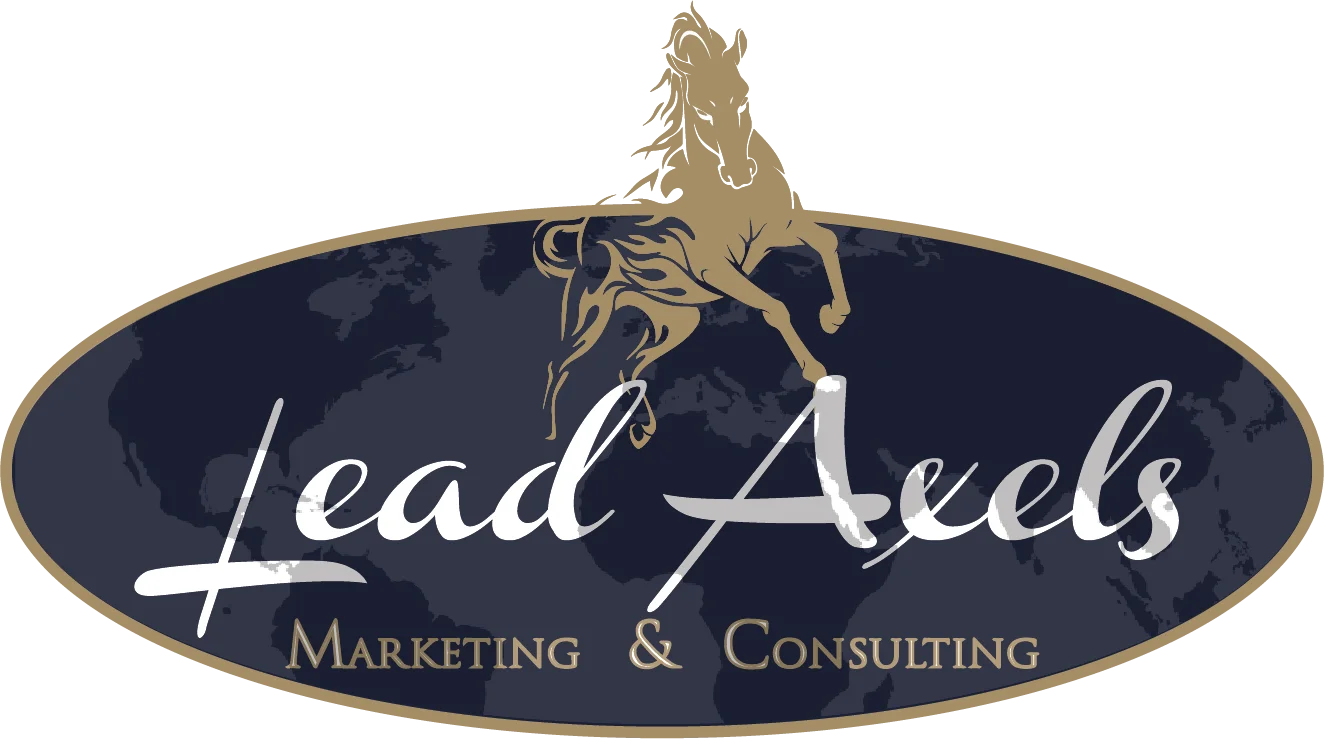LEADAXELS CONSULTING
Company Registration:
The process of registering a company in the USA can vary depending on the state and the type of business entity you want to establish. However, there are general steps that apply to most businesses. Here's a comprehensive overview of the company registration process in the USA:
-
1. Choose Your Business Structure:
Decide on the legal structure of your business, which can include options such as a sole proprietorship, partnership, LLC, corporation, or others. Consider factors like liability protection, tax implications, and management structure when choosing your business entity. -
2. Choose Your State:
Select the state in which you want to register your business. The choice of state can have legal and tax implications, so consider factors like registration fees, taxes, and regulations. -
3. Register Your Business Name:
Choose a unique and available business name that complies with your state's naming rules. Check the availability of the name through your state's business entity search. -
4. Obtain an EIN (Employer Identification Number):
An EIN is required for most businesses and is necessary for tax purposes. You can obtain an EIN from the IRS either online or by submitting Form SS-4. -
5. Register with the State:
Depending on your business structure, you will need to register your company with the appropriate state agency. This may be the Secretary of State's office, the Department of Revenue, or another relevant agency. -
6. File Formation Documents:
Prepare and file the necessary formation documents with the state, which may include Articles of Incorporation (for corporations) or Articles of Organization (for LLCs). Pay the required filing fees. -
7. Create Operating Agreements or Bylaws:
Draft and adopt operating agreements (for LLCs) or bylaws (for corporations) that outline the management structure and operating procedures of your business. -
8. Get the Required Permits and Licenses:
Determine what permits and licenses are needed for your specific industry and location. This can include federal, state, and local permits.
-
9. Register for State Taxes:
Register your business for state taxes, such as sales tax, employment tax, or other state-specific taxes, if applicable. -
10. Comply with Federal Requirements:
If your business operates in multiple states or has employees, ensure compliance with federal requirements, such as labor laws, OSHA regulations, and more. -
11. Open a Business Bank Account:
Separate your personal and business finances by opening a dedicated business bank account. -
12. Secure Business Insurance:
Consider appropriate business insurance to protect your company from liability and unforeseen risks. -
13. Set Up Record-Keeping:
Establish a record-keeping system to maintain financial records, contracts, and important documents. -
14. Register for Trademarks or Patents (If Applicable):
If your business has unique intellectual property, consider trademark or patent registration for protection. -
15. Develop a Business Plan:
Create a detailed business plan that outlines your business goals, strategies, and financial projections. -
16. Hire Employees (If Applicable):
If you plan to hire employees, adhere to federal and state labor laws, obtain workers' compensation insurance, and register with your state's labor department.

Connecting businesses, people &
ideas for the future.
Human resources
Investment consulting
New technologies
Long term planning for
unlimited success.

INSURANCE AGENCY CONSULTATION
Comprehensive Insurance Agency Startup Consultation
Congratulations on embarking on your journey to start an insurance agency! Launching an insurance agency is an exciting endeavor that demands careful planning and consideration. To assist you in this process, we offer a comprehensive consultation to guide you through the essential steps to establish a successful insurance agency. Here's a detailed roadmap:
-
1. Define Your Niche and Services:
Determine your specialization within the insurance industry, such as auto, home, life, health, commercial, or a combination. Outline the specific insurance products and services you intend to offer. -
2. Market Research and Analysis:
Conduct thorough market research to identify your target audience, local competition, and industry trends. Analyze the demand for insurance products and assess the potential for growth in your chosen niche. -
3. Business Plan Development:
Create a comprehensive business plan that outlines your agency's mission, vision, goals, and strategies. Include a financial plan with projected income, expenses, and break-even analysis. -
4. Legal and Regulatory Compliance:
Research the legal and regulatory requirements for insurance agencies in your state. Register your business with the appropriate state agencies and obtain the necessary licenses and permits. -
5.Business Structure and Entity Formation:
Choose a legal structure for your agency, such as a sole proprietorship, partnership, LLC, or corporation. Register your chosen business entity with the state and obtain an Employer Identification Number (EIN) from the IRS. -
6. Location and Office Setup:
Select a suitable location for your agency, considering accessibility, visibility, and proximity to your target market. Furnish and set up your office space with essential equipment, technology, and office supplies. -
7. Insurance Carrier Relationships:
Establish relationships with insurance carriers to access a variety of insurance products. Research and select carriers that align with your agency's specialization and client needs. -
8. Agency Management Software:
Invest in insurance agency management software to streamline client management, policy processing, and document storage.
-
9. Marketing and Branding:
Develop a marketing plan that includes branding, website creation, social media presence, and advertising strategies. Utilize a mix of traditional and digital marketing to reach potential clients. -
10. Sales and Lead Generation:
Implement lead generation strategies, including cold calling, networking, and partnerships within your community. Train your agents or sales team in effective sales techniques and customer relationship management. -
11. Compliance and Continuing Education:
Stay current with insurance industry regulations and compliance standards. Encourage agents to pursue ongoing education and certifications in insurance and related fields. -
12.Insurance Agency Staffing:
Hire and train qualified insurance agents and support staff. Develop job descriptions, provide training, and foster a positive work environment. -
13. Client Onboarding and Service Process:
Create an efficient process for client onboarding, policy issuance, claims handling, and ongoing client service. Ensure excellent customer service to retain and grow your client base. -
14. Financial Management:
Implement sound financial management practices, including bookkeeping, budgeting, and cash flow monitoring. Secure the necessary insurance coverage for your agency, including errors and omissions (E&O) insurance. -
15 .Growth and Expansion:
Plan for agency growth, including potential branch offices or partnerships with other agencies. Explore additional insurance product lines to diversify your agency's offerings.
Helping our clients reach their full potential on the market.
Financial Advice
An insurance agent plays a vital role in helping clients navigate the complex world of insurance, providing valuable guidance, and ensuring clients have the coverage they need to protect their financial well-being. Here is a comprehensive overview of the role of an insurance agent in serving their clients:
1. Assessing Client Needs:
- Insurance Analysis: Conduct a thorough assessment of the client's unique insurance needs. This involves understanding their lifestyle, assets, financial obligations, and risk tolerance.
- Risk Evaluation: Identify potential risks and vulnerabilities the client may face, such as health risks, property or liability risks, or income protection needs.
2. Providing Expert Advice:
- Educate Clients: Explain insurance concepts, coverage options, policy terms, and the importance of insurance in simple and understandable terms.
- Recommendation: Based on the assessment, recommend suitable insurance products and coverage levels to meet the client's specific needs and budget.
3. Shopping for Coverage:
- Market Research: Shop for insurance policies from multiple insurance providers to find the best coverage options and rates that align with the client's requirements.
- Policy Comparisons: Present clients with a selection of insurance policies, explaining the differences, pros, and cons of each, so the client can make an informed decision.
4. Customizing Policies:
- Tailoring Coverage: Customize insurance policies to suit the client's unique needs, whether it's personal lines like auto, home, or health insurance, or commercial policies for businesses.
- Endorsements: Discuss and include optional endorsements or riders to enhance coverage, if necessary.
5. Policy Management:
- Policy Review: Regularly review existing insurance policies to ensure they remain up-to-date and adequately cover any life changes or evolving needs.
- Policy Amendments: Assist clients with policy changes, endorsements, and updates as circumstances change.
6. Claims Assistance:
- Claims Guidance: Help clients navigate the claims process when they need to file a claim. Provide support, including explaining the process, submitting necessary documentation, and advocating for a fair settlement..
- Claims Advocacy: Act as an advocate for the client's best interests, ensuring the insurance company honors its obligations and commitments.
7. Policy Renewals:
- Accessibility: Be readily available to address client inquiries, concerns, and emergencies. This includes maintaining open lines of communication through phone, email, or in-person meetings.
- Client Education: Continuously educate clients about changes in the insurance industry, policy updates, and best practices for maintaining adequate coverage.
8. Risk Management:
- Risk Mitigation: Advise clients on risk mitigation strategies to reduce the likelihood of insurance claims. This may include home safety measures, preventive health practices, or safe driving tips..
9. Customer Support:
- Accessibility: Be readily available to address client inquiries, concerns, and emergencies. This includes maintaining open lines of communication through phone, email, or in-person meetings.
- Client Education:Continuously educate clients about changes in the insurance industry, policy updates, and best practices for maintaining adequate coverage.
10. Ongoing Relationship:
- Client Relationships: Build long-term relationships based on trust and professionalism, demonstrating a commitment to serving the client's best interests.
- Periodic Reviews: Conduct periodic insurance reviews to ensure that coverage remains appropriate as the client's life and needs evolve..
11. Compliance and Ethical Standards:
- Regulatory Compliance: Ensure all interactions and recommendations comply with insurance laws and regulations.
- Ethical Conduct: Uphold high ethical standards by putting the client's interests first and avoiding conflicts of interest..
Business Funding And Line of Credit
Are you a new start up business and don't know how to set up your business to access business funding from Financial Institutions? Do you own a business and don't know how to get business Credit cards or built your business Credit ? Well look no further because Leadaxels is here to you achieve your Dreams within a short period of time .
At Leadaxels INC, we understand that access to capital and financial resources is critical for the growth and success of your business. Our dedicated team of experts is here to provide comprehensive Business Funding and Line of Credit Consulting Services, tailored to meet your unique financial needs and help your business thrive.
Financial Assessment:
We start by conducting a thorough financial assessment of your business. This includes analyzing your financial statements, cash flow, creditworthiness, and current financial challenges.
Funding Strategy:
Based on the assessment, we work with you to develop a customized funding strategy that aligns with your business goals. We consider various funding options, including loans, lines of credit, grants, and equity financing.
Lender Matching:
Our extensive network of financial institutions, lenders, and investors allows us to match your business with the most suitable funding sources. We facilitate introductions and assist with the application process.
Credit Building and Optimization:
If improving your credit profile is necessary to secure funding, we provide guidance on credit optimization, helping you build a strong credit history.
Business Plan Development:
A compelling business plan is often a prerequisite for obtaining funding. We assist in creating or refining your business plan to meet the expectations of lenders and investors.
Line of Credit Management:
For businesses seeking a line of credit, we offer assistance in managing and optimizing your credit line, ensuring that it serves as a valuable financial resource.
Grants and Incentives:
We help you identify and access grants, subsidies, and incentives available to your specific industry or location, reducing your financial burden.
Alternative Funding Solutions:
In addition to traditional bank loans, we explore alternative funding sources, such as crowdfunding, peer-to-peer lending, and angel investors, depending on your business's needs.
Due Diligence and Compliance:
We ensure that your funding applications and proposals meet all necessary compliance and due diligence requirements, increasing your chances of approval.
Financial Education:
Throughout the consulting process, we educate you on financial concepts, terms, and strategies, empowering you to make informed decisions about your business's financial future.
Ongoing Support:
Our commitment doesn't end with securing funding. We provide ongoing support and monitoring to ensure that your business effectively manages its financial resources and thrives.
Why Choose Us
At Leadaxels INC, we are dedicated to helping businesses like yours secure the funding and credit they need to thrive. Let us be your trusted financial partner, and together, we will drive your business towards greater success and financial stability. Contact us today to get started on your path to financial empowerment.
-
Expertise:
Our team comprises seasoned financial consultants with a deep understanding of business funding and credit solutions. -
Tailored Approach:
We recognize that every business is unique. Our consulting services are customized to meet your specific financial needs and challenges. -
Network:
With our extensive network of financial partners, we can connect your business with the right funding sources. -
Results-Oriented:
Our ultimate goal is to see your business succeed. We measure our success by the growth and financial stability of your enterprise. -
Client-Centric:
Your satisfaction and success are our top priorities. We work closely with you at every stage of the process.

